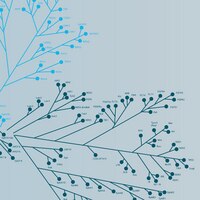Activation of the novel stress-activated protein kinase SAPK4 by cytokines and cellular stresses is mediated by SKK3 (MKK6); comparison of its substrate specificity with that of other SAP kinases.
Goedert, M, et al.
EMBO J., 16: 3563-71 (1997)
1997
Show Abstract
A cDNA was cloned that encodes human stress-activated protein kinase-4 (SAPK4), a novel MAP kinase family member whose amino acid sequence is approximately 60% identical to that of the other three SAP kinases which contain a TGY motif in their activation domain. The mRNA encoding SAPK4 was found to be widely distributed in human tissues. When expressed in KB cells, SAPK4 was activated in response to cellular stresses and pro-inflammatory cytokines, in a manner similar to other SAPKs. SAPK4 was activated in vitro by SKK3 (also called MKK6) or when co-transfected with SKK3 into COS cells. SKK3 was the only activator of SAPK4 that was induced when KB cells were exposed to a cellular stress or stimulated with interleukin-1. These findings indicate that SKK3 mediates the activation of SAPK4. The substrate specificity of SAPK4 in vitro was similar to that of SAPK3. Both enzymes phosphorylated the transcription factors ATF2, Elk-1 and SAP-1 at similar rates, but were far less effective than SAPK2a (also called RK/p38) or SAPK2b (also called p38beta) in activating MAPKAP kinase-2 and MAPKAP kinase-3. Unlike SAPK1 (also called JNK), SAPK3 and SAPK4 did not phosphorylate the activation domain of c-Jun. Unlike SAPK2a and SAPK2b, SAPK4 and SAPK3 were not inhibited by the drugs SB 203580 and SB 202190. Our results suggest that cellular functions previously attributed to SAPK1 and/or SAPK2 may be mediated by SAPK3 or SAPK4. | 9218798
 |









